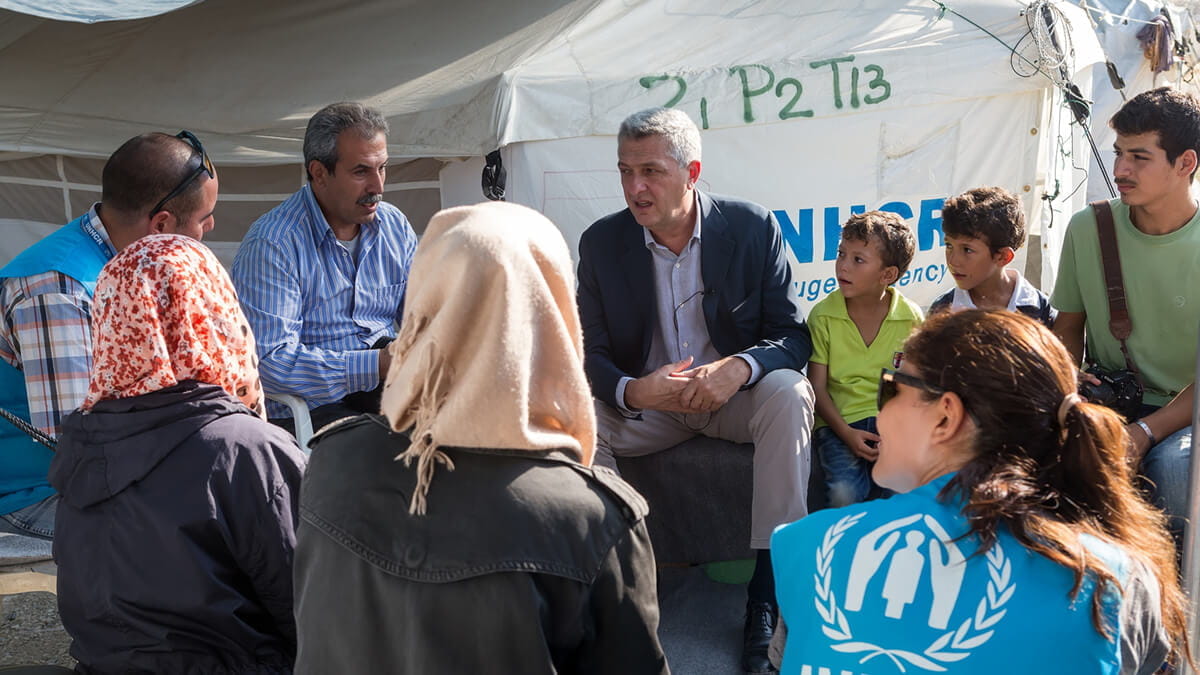In 2015, 1.3 million refugees applied for asylum in the European Union, Norway, and Switzerland.* Known as crisis migrants, these refugees came from—and continue to come from—war-torn and/or politically unstable nations around the world, with the majority coming from Syria, Iraq, and Afghanistan.*
Unlike typical migrants, crisis migrants rarely leave their homes with an emigration plan. Instead, they leave in a hurry, often abandoning their belongings and enduring difficult journeys with uncertain destinations. This creates a number of public health problems for nations willing to accept crisis migrants. If you’re considering starting or advancing a public health career, you may find yourself helping the crisis migrants arriving in your nation or town. Here’s what you need to know:
The Public Health Issues Related to Crisis Migration
If you’re designing a public health program focused on crisis migrants, these are the top issues you will likely want to address:
Communicable Diseases: Refugee camps often include tight quarters and sub-par sanitation that can lead to the quick spread of disease. Additionally, migrants may unknowingly bring infectious diseases into the host country, which can spread to the non-migrant population.
Chronic Diseases: As with any population, crisis migrants typically suffer from a wide range of chronic diseases, such as diabetes, heart disease, high blood pressure, glaucoma, etc. These chronic diseases can become a serious issue because crisis migrants often have limited or no access to the medications and treatment they need to manage their ailments.
Mental Health: In addition to pre-existing mental health issues that may be exacerbated by their refugee status and/or their lack of access to mental healthcare and medications, crisis migrants can also suffer from post-traumatic stress disorder and other mental health problems related to what they endured in their home country.
Women’s Health: Female migrants need services relating to reproductive health. In particular, pregnancy and childbirth can be quite challenging for migrants. Additionally, public health professionals may need to address instances and threats of sexual violence.
Children’s Health: Children who are traveling alone will need attentive care. Even those traveling with guardians may need vaccinations and educational services. Children are also at greater risk for catching infectious diseases.
What Public Health Professionals Can Do to Help
Public health professionals with the proper skills can make a significant difference in the health and well-being of crisis migrants. When faced with the arrival of crisis migrants, public health professionals can work with biostatisticians, epidemiologists, and others to survey the migrant population and assess risks. Armed with these assessments, public health professionals can use their knowledge of vaccinations, health-related environmental concerns, communicable diseases, chronic diseases, mental disorders, women’s health, and children’s health to advise government agencies and nonprofits that are responding to crisis migration. This advice can include establishing culturally appropriate public health programs that are specifically designed for the needs of crisis migrants.
How You Can Help Crisis Migrants
While addressing any public health matter requires doctors, nurses, researchers, and health administrators, it’s public health professionals who typically have the skills to focus everyone and develop holistic solutions. If you’re interested in gaining those skills—or in improving the public health skills you currently possess—one of the best choices you can make is to earn a public health degree, specifically a Master of Public Health (MPH) degree.
Through an MPH program, you can gain the knowledge of qualitative and quantitative research and develop the analytical skills you need to assess health risks within a community and design effective public health programs. The good news is, thanks to online learning, many of the best MPH programs are available to you no matter where you live. That’s because, when you enroll in an public health degree program online, you can complete your coursework from home or anywhere else you have internet access. As if that wasn’t already convenient enough, an online master of public health degree program will also allow you to attend classes on a flexible schedule. Instead of trying to fit your work around your public health graduate program, you can fit your classes around your work.
If you want a job in public health focused on helping crisis migrants, a master of public health degree can put you in position to meet your career goals. And there’s no more convenient way to earn an MPH degree than through online education.
Walden University is an accredited institution offering a Master of Public Health degree program online. Expand your career options and earn your degree in a convenient, flexible format that fits your busy life.
*P. Connor, Number of Refugees to Europe Surges to Record 1.3 Million in 2015, Pew Research Center, on the internet at www.pewglobal.org/2016/08/02/number-of-refugees-to-europe-surges-to-record-1-3-million-in-2015.
Walden University is accredited by The Higher Learning Commission, www.hlcommission.org.




